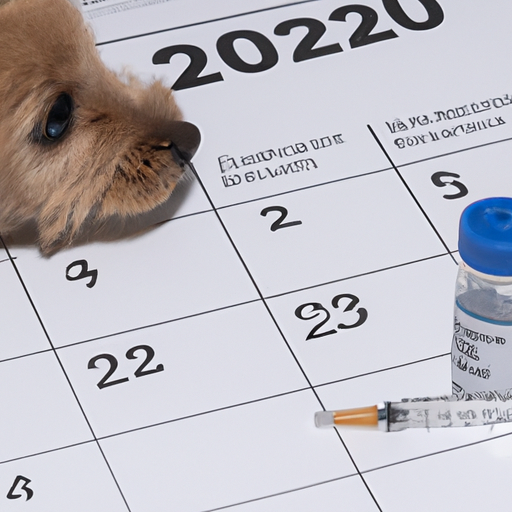As a dog owner, you’re undoubtedly aware of the importance of preventative healthcare. One crucial aspect of this is ensuring your furry friend is up-to-date with their vaccinations. Among these vaccines is the one for Bordetella, a bacterium that causes a respiratory disease commonly known as ‘kennel cough.’ But how long is the Bordetella vaccine good for in dogs? Let’s dive into the details.
Table of Contents
- What is Bordetella?
- How Long is the Bordetella Vaccine Effective?
- Factors Affecting Vaccine Efficacy
- Revaccination Schedule
- Potential Side Effects
- Frequently Asked Questions
Key Takeaways
- The Bordetella vaccine is vital for preventing kennel cough in dogs.
- Typically, the vaccine’s efficacy lasts for about 6 to 12 months.
- Factors such as the dog’s overall health, lifestyle, and the vaccine type can influence its effect.
- Regular revaccination is necessary to ensure continued protection.
- While side effects are rare, dog owners should be aware of the potential reactions.
What is Bordetella?
Bordetella bronchiseptica is a highly contagious bacterium that causes kennel cough, a respiratory disease characterized by a harsh, hacking cough. Dogs in close contact with others, such as in kennels, dog parks, or shelters, are at a higher risk of contracting this illness. The Bordetella vaccine helps to prevent this condition and is often a requirement if your dog is to be boarded or attend a doggy daycare.
How Long is the Bordetella Vaccine Effective?
Typically, the Bordetella vaccine is effective for about 6 to 12 months. However, the exact duration can vary based on several factors, including the type of vaccine used (intranasal, oral, or injectable), the dog’s overall health, and their exposure to high-risk environments.
Factors Affecting Vaccine Efficacy
Let’s discuss the factors that can influence the Bordetella vaccine’s effectiveness.
1. Type of Vaccine
Three types of Bordetella vaccines are available: intranasal, oral, and injectable. The intranasal and oral vaccines tend to provide immunity faster (within 72 hours), making them ideal for dogs that need immediate protection. The injectable vaccine, on the other hand, requires a booster shot two weeks after the initial dose for maximum protection.
2. Dog’s Overall Health
A dog’s overall health can also impact how well the vaccine works. For instance, a dog with a compromised immune system may not respond to the vaccine as effectively as a healthy dog.
3. Exposure to High-Risk Environments
Dogs frequently exposed to high-risk environments, such as boarding facilities, dog parks, and grooming salons, may require more frequent vaccinations as they are at a higher risk of catching kennel cough.
Revaccination Schedule
Given the Bordetella vaccine’s limited duration of efficacy, regular revaccination is essential. Most vets recommend revaccinating dogs annually, but those at higher risk may need shots every six months. Always consult with your vet to establish the best vaccination schedule for your dog. You can find more about this on OneTopDog.
Potential Side Effects
While the Bordetella vaccine is generally safe, some dogs may experience side effects. These can include mild coughing, sneezing, or nasal discharge following the intranasal vaccine. In rare cases, dogs may develop more severe reactions, like fever, loss of appetite, or lethargy.
Frequently Asked Questions
1. Can my dog get kennel cough even if he’s vaccinated?
Yes, it’s possible. The Bordetella vaccine protects against the Bordetella bronchiseptica strain but not all types of kennel cough.
2. Can I skip the Bordetella vaccine if my dog doesn’t frequent high-risk environments?
It’s best to discuss this with your vet. Even dogs that don’t go to kennels or dog parks can be exposed to kennel cough.
3. What should I do if my dog has a reaction to the vaccine?
If your dog shows signs of a severe reaction, such as difficulty breathing, swelling, or hives, seek immediate veterinary care.
In conclusion, the Bordetella vaccine plays a crucial role in protecting your dog from kennel cough. By understanding its duration of efficacy and being aware of the revaccination schedule, you ensure your furry friend remains healthy and happy. For more health tips for your pup, check out these articles on dog nutrition, dental care, and exercise on OneTopDog.



